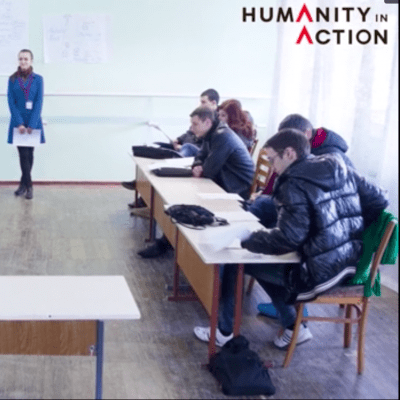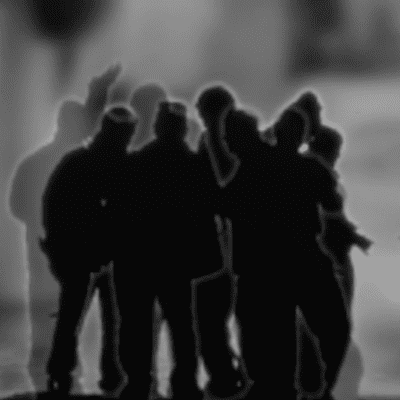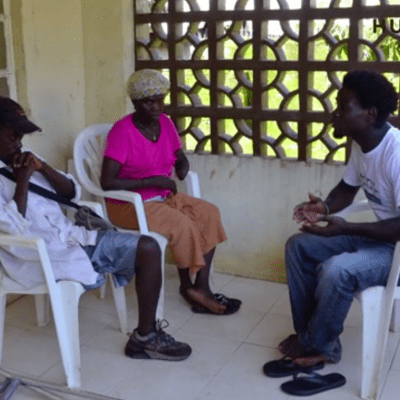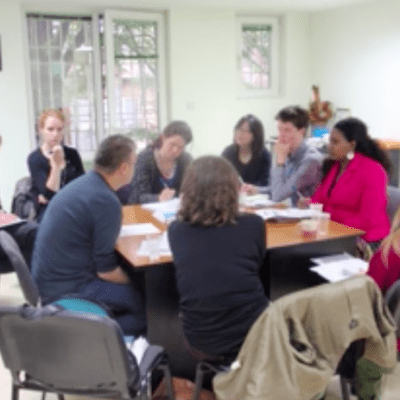Article
Humanity in Action Senior Fellows and staff recently teamed up with U.S. Peace Corps Volunteers and staff, Moldovan university students, and the Moldovan NGO MilleniuM for a conference designed to explore diversity and democracy and develop innovative simulation games to teach human rights and active citizenship in the small post-Soviet country.
Transnistria is inhabited by a mix of ethnic Russians, Ukrainians, and Moldovans. The simulation game strives to introduce participants to the various dynamics of the conflict, and increase mutual understanding of the issues involved.
From March 20-25, 2012, twenty-five participants gathered in the capital Moldovan capital of Chisinau to explored current political conflicts, minority issues, and intercultural challenges in the region. The conference was the first phase of the project “Simulation Games for Teaching Human Rights and Active Citizenship in Post-Soviet Moldova”, and produced two draft simulation games to be facilitated throughout Moldova during phase two of the project.
The first simulation was focused on the frozen conflict in the breakaway Moldovan region of Transnistria, which fought a short war with Moldova after its self-proclaimed independence in 1991. Today, the region remains unrecognized by any other country, but exercises de facto autonomy. Transnistria is inhabited by a mix of ethnic Russians, Ukrainians, and Moldovans. The simulation game strove to introduce participants to the various dynamics of the conflict, and increase mutual understanding of the issues involved.
“This is the first major attempt to introduce simulations as a broad-based teaching tool in the country.”
The second simulation aimed to teach participants about local social and political processes, and was specifically designed to help aid Peace Corps Volunteers’ intercultural integration and youths’ understanding of local governance. The game is set in a fictitious Moldovan village where 11 diverse stakeholder groups must come together to negotiate the design of a community project in order to win an important grant competition.
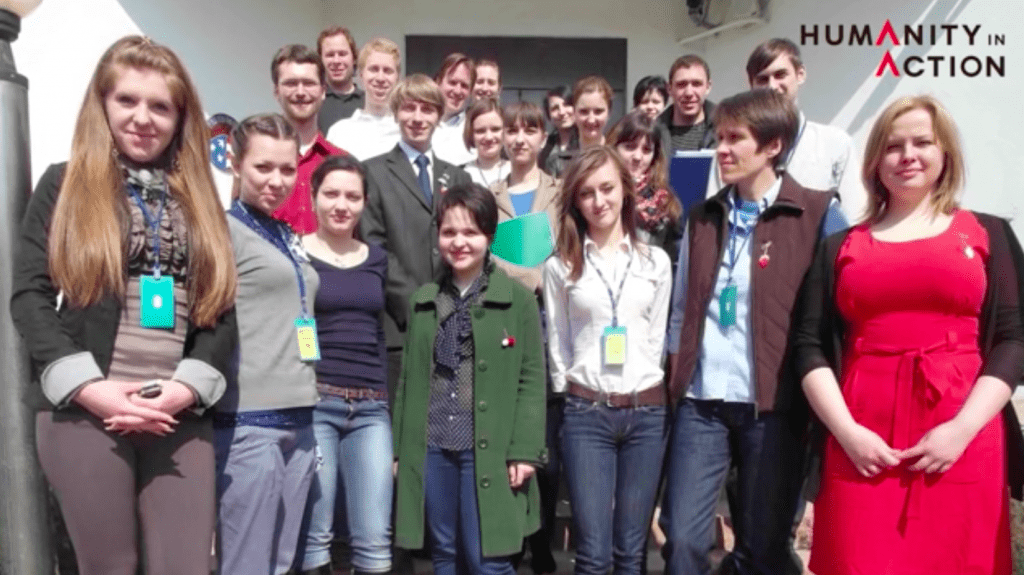
Both simulations were published as ready-to-use manuals including scenario outlines, background information, role cards and guidelines for facilitators.
The kick-off conference in March 2012 was hosted by Peace Corps Moldova and co-organized by the MilleniuM together with Humanity in Action Germany. The project was organized by Senior Fellow Zachariah Falconer-Stout, who served as a Peace Corps Volunteer in Moldova from 2010 to 2012 and as a Peace Corps Volunteer Leader in Moldova until 2013. The conference was financially supported by Humanity in Action Netherlands, through a grant of the Dutch Ministry of Health, Welfare and Sports (VWS). The participation of simulation experts from Humanity in Action Germany was supported by the German Federal Foreign Office and the Foundation Remembrance, Responsibility and Future.
Both simulations were published as ready-to-use manuals including scenario outlines, background information, role cards and guidelines for facilitators. Translations from English into Romanian and Russian are available. The ambitious implementation plan was supervised by MilleniuM, using the Moldovan students as facilitators who traveled throughout the country with Peace Corps Volunteers to bring the game to high school civics classrooms and youth groups. Civics education in Moldova is predominantly lecture-based, and interest from teachers was high. Project coordinators planned to facilitate the games 10 times by end of June 2012 and 24 times by the end of 2012. This was the first major attempt to introduce simulations as a broad-based teaching tool in the country.
To learn more about these two simulation games, read the manuals for A Meeting of Perspectives and Thawing the Freeze here.

